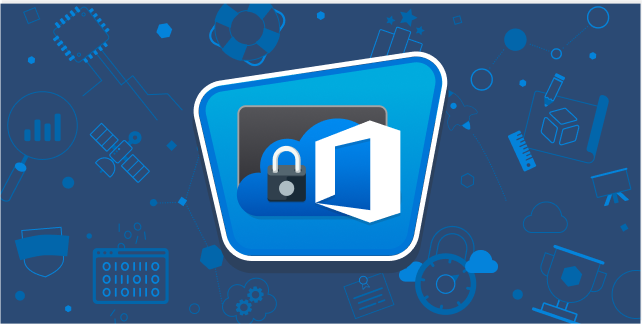
Skill up to strengthen your organization's cybersecurity posture
Today, cybersecurity is everyone’s job. Although specialized engineers are vital, the best defense is from the ground up and from end to end.
You’re not imagining it—the number of major cybersecurity incidents is increasing. And according to Forbes Advisor Cybersecurity Stats: Facts And Figures You Should Know, "The repercussions of cyberattacks are far-reaching and costly. A data breach costs $4.88 million on average in 2024. In 2023, compromised business emails accounted for more than $2.9 billion in losses. These alarming figures emphasize the danger of cyber vulnerabilities and highlight the need for skilled cybersecurity professionals.”
Even small and medium-sized organizations can inadvertently provide cybercriminals with a pathway to bigger targets, which means that every organization needs to skill up its teams to protect against ransomware, data breaches, and other security incidents.
National Cybersecurity Awareness Month is an ideal time for organizations of all sizes to refocus and make a plan to build strong, year-round defenses. Microsoft Learn for Organizations can help your teams build skills to protect and secure your data, information, and systems.
Apply security first, across the board
Even the most sophisticated cyber defense is built on the basics. The US Federal Trade Commission’s (FTC’s) Cybersecurity Basics include using strong passwords and multifactor authentication, keeping all software and systems updated, securing backups, and of course, remaining on the alert against phishing.
Another good start is Microsoft Security 101, which explains security-related vocabulary, core concepts, and best practices. Or check out the Security hub on Microsoft Learn, which offers technical guidance and resources for aspiring and experienced cybersecurity professionals.
Beyond these foundations, organizations should cultivate a true security-first culture, as embodied by the Microsoft Security First Initiative (SFI). Upskilling across all roles and teams can minimize weak links in the protective chain, empowering your entire organization to prevent, detect, and mitigate issues.
Microsoft Learn for Organizations includes Plans on Microsoft Learn that cover security training for various job roles, such as:
Build skills with cybersecurity training from Microsoft Learn
Microsoft Learn offers self-paced, on-demand security training for many roles, skill levels, and products, and Microsoft Learn for Organizations curates this content for you and your teams to make it easier to reach your goals. The new Microsoft Security Technical Training poster highlights key offerings—whether you’re just starting out or you want to earn an expert Certification.
Get started with cybersecurity basics
Begin your learning journey with self-paced training on the essentials:
Describe the basic concepts of cybersecurity examines how you and your team can protect your organization from cyberattacks.
Implement information protection and data loss prevention by using Microsoft Purview explores how to govern and protect your organization’s sensitive information.
Course SC-900: Microsoft Security, Compliance, and Identity Fundamentals covers foundational knowledge, along with the capabilities of the cloud-based identity and access management solution Microsoft Entra. It can also help you prepare to earn the Microsoft Certified: Security, Compliance, and Identity Fundamentals Certification.
Build core skills
The core security training on the new poster dives deeper with self-paced offerings that help you skill up to earn Microsoft Certifications:
Course SC-200: Microsoft Security Operations Analyst teaches you to investigate, search for, and mitigate threats using Microsoft Sentinel, Microsoft Defender for Cloud, and Microsoft 365 Defender.
Course SC-300: Microsoft Identity and Access Administrator covers configuring and managing identities for users, devices, Azure resources, and applications. Use Microsoft Entra to design, implement, and operate your organization’s identity and access management.
Course SC-400: Administering Information Protection and Compliance in Microsoft 365 teaches the skills needed to fill the role of information protection and compliance administrator.
Course AZ-500: Microsoft Azure Security Technologies prepares you to fill the role of Azure security engineer, as you implement security controls, maintain your organization’s security posture, and identify and remediate security vulnerabilities.
Learning path SC-100: Design solutions that align with security best practices and priorities offers expert training for real-world cybersecurity skills to protect your organization’s assets, business, and operations.
Earn scenario-based credentials
Microsoft Applied Skills credentials focus on validating in-demand technical skills in specific scenarios, proving your readiness to take on new tasks and projects for your team. Security-focused Applied Skills scenarios include:
Configure SIEM security operations using Microsoft Sentinel. Demonstrate your ability to create and configure a workspace, deploy a content hub solution, configure analytics rules, and configure automation in Microsoft Sentinel.
Secure Azure services and workloads with Microsoft Defender for Cloud regulatory compliance controls. Show that you can mitigate risks in network security, data protection, endpoint security, and posture and vulnerability management.
Implement information protection and data loss prevention by using Microsoft Purview. Validate your ability to discover, classify, and protect sensitive data in Microsoft 365, effectively implementing data security by using Microsoft Purview.
Be cybersmart—always vigilant and always learning
Technology is ever evolving, and so is cybercrime. And building a strong cybersecurity defense is a journey. You and your teams can build your skills anytime—not just during National Cybersecurity Awareness Month! The resources, offerings, and opportunities on Microsoft Learn—curated for teams on Microsoft Learn for Organizations—can help you and your organization build the skills needed to address today’s security requirements and empower your teams to better meet tomorrow’s cybersecurity challenges.

Recommended Comments